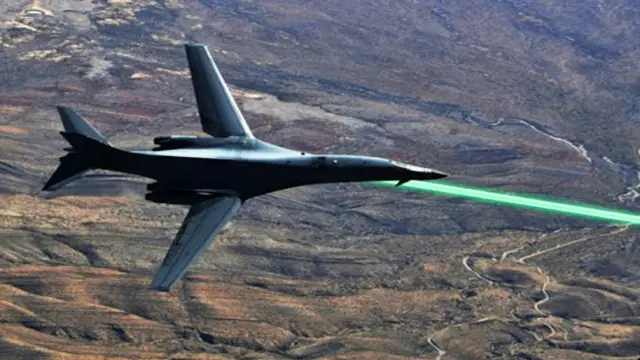In October 1973, a significant conflict erupted in the Middle East. Israel faced a surprise attack from a coalition of Egypt and Syria. This event is known as the Yom Kippur War. It was a pivotal moment in the region’s history, with lasting effects on politics and society. Let’s dive into the details of this conflict, exploring the reasons behind it and its aftermath.
Key Points
What Led to the 1973 Attack?
The roots of the 1973 attack can be traced back to the Six-Day War in 1967. In that conflict, Israel captured significant territories, including the Sinai Peninsula from Egypt and the Golan Heights from Syria. These territorial losses were a source of deep resentment for both countries.
Egyptian President Anwar Sadat and Syrian President Hafez al-Assad sought to regain their lost lands. They believed that a military confrontation was necessary to achieve this goal. The two leaders formed an alliance, planning a coordinated attack on Israel during the Jewish holiday of Yom Kippur, when many Israeli soldiers would be on leave.
The Surprise Attack
On October 6, 1973, Egypt and Syria launched their attack. The timing was strategic, as it caught Israel off guard. Egyptian forces crossed the Suez Canal, while Syrian troops advanced into the Golan Heights. The initial stages of the war saw significant gains for both Egypt and Syria.
Israel was unprepared for the scale of the assault. Many soldiers were away for the holiday, and the intelligence services failed to predict the attack. This led to chaos and confusion within the Israeli military.
See More: Unbelievable War Animals
The Course of the War
Despite the initial setbacks, Israel quickly mobilized its forces. Within days, they began to push back against the Egyptian and Syrian armies. The fighting was intense, with heavy casualties on both sides.
In the Sinai Peninsula, Israeli forces launched a counteroffensive. They crossed the Suez Canal and encircled the Egyptian Third Army. Meanwhile, in the Golan Heights, Israeli troops fought fiercely to repel the Syrian advance.
Read More: Secrets of Unit 731: How the U.S. Protected Japanese War Criminals
International Involvement
The Yom Kippur War drew international attention. The United States and the Soviet Union were heavily involved, supporting their respective allies. The U.S. provided military aid to Israel, while the Soviet Union backed Egypt and Syria. This global involvement heightened tensions and raised concerns about a larger conflict.
Read More: Japan’s WWII Biological Warfare
The Aftermath of the War
The war lasted until October 25, 1973, when a ceasefire was declared. The conflict resulted in heavy losses. Estimates suggest that around 2,800 Israelis and 8,500 Arabs were killed. The war also had significant political implications.
In the aftermath, Anwar Sadat took a bold step. He sought peace with Israel, leading to the Camp David Accords in 1978. This agreement resulted in Egypt recognizing Israel and regaining the Sinai Peninsula. It was a historic moment, marking the first peace treaty between Israel and an Arab country.
Read More: British-American War of 1812
Historical Background
To understand the 1973 War, we must look back at the events leading up to it. The Arab-Israeli conflict began in the mid-20th century, primarily after the establishment of Israel in 1948. This event led to the first Arab-Israeli War, where neighboring Arab countries, including Egypt and Syria, opposed the creation of a Jewish state.
Read More: Military History: List of Wars
In 1967, tensions escalated further during the Six-Day War. Israel achieved a stunning victory, capturing territories such as the West Bank, Gaza Strip, Sinai Peninsula, and the Golan Heights. This defeat left Egypt and Syria humiliated and eager for revenge.
Reasons for the Attack
- Territorial Losses: The territories lost in the 1967 war were a significant source of frustration for both Egypt and Syria. They wanted to reclaim these lands to restore national pride and sovereignty.
- Political Pressure: Leaders in both countries faced internal pressure. Egyptian President Anwar Sadat and Syrian President Hafez al-Assad needed to demonstrate strength to their citizens. A successful military campaign against Israel could bolster their popularity and legitimacy.
- Strategic Timing: The attack was planned for Yom Kippur, the holiest day in Judaism. This timing aimed to catch Israel off guard, as many soldiers were on leave to observe the holiday.
- Support from Allies: Egypt and Syria received support from the Soviet Union, which provided military equipment and training. This backing encouraged them to take action against Israel.
See More:
- American Civil War: (1861 – 1865) Part 1
- American Civil War: Part 2, Eastern Campaigns, 1861-65
- American Civil War: Part 3, War in the West
- American Civil War: Part 4, The Naval War
- American Civil War: Part 5, Vicksburg Campaign
- American Civil War: Part 6, 1865, Overview
Why Did the War Matter?
The Yom Kippur War was crucial for several reasons:
- Shift in Power Dynamics: The war changed the balance of power in the Middle East. It showed that Arab nations could challenge Israel militarily, altering perceptions on both sides.
- Peace Efforts: The conflict set the stage for future peace negotiations. Sadat’s willingness to engage with Israel opened doors for dialogue in the region.
- Military Lessons: The war highlighted the importance of intelligence and preparedness. Israel learned valuable lessons that would shape its military strategy in the years to come.
Frequently Asked Questions (FAQs)
The Yom Kippur War was a conflict in 1973 where Israel was attacked by Egypt and Syria.
They aimed to regain territories lost during the Six-Day War in 1967.
The war began on October 6, 1973, during the Jewish holiday of Yom Kippur.
The war led to heavy casualties and eventually paved the way for peace talks, notably the Camp David Accords.
The war intensified Cold War tensions, as both superpowers supported opposing sides.
The United States increased its involvement in the Middle East, facilitating peace talks and supporting Israel.
Conclusion
The 1973 War was a pivotal moment in Middle Eastern history. It was driven by a complex mix of historical grievances, political pressures, and strategic calculations. Understanding the reasons behind the conflict helps us grasp the ongoing challenges in the region today. The legacy of the war continues to influence Arab-Israeli relations and the broader geopolitical landscape.
By examining the past, we can better understand the present and work towards a more peaceful future in the Middle East.























